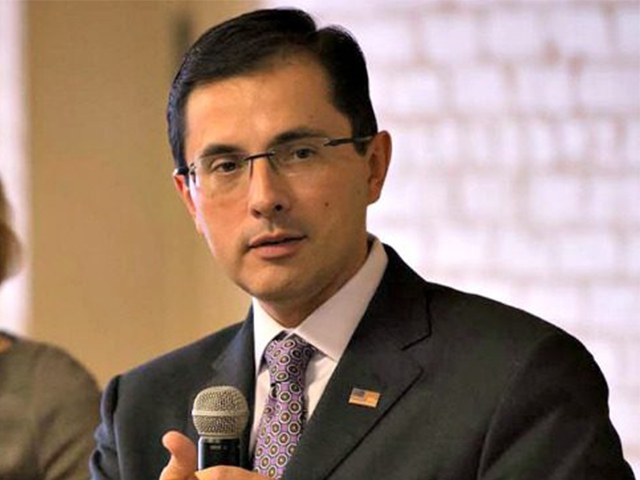Americans have begun exercising their Constitutional right to elect who governs them in the nation’s executive and legislative branches. However, ordinary people still have no say in the governance of the sprawling agencies that make up the Washington bureaucracy, even though this fourth branch of government significantly impacts our lives.
If elected, President Trump has the opportunity to transform these agencies in desperate need of reform. He should start with the Small Business Administration (SBA), which has been weighed down for years by bureaucracy, politicization, and an excessive focus on loan-making.
The historic challenges small businesses have faced over the past few years — from the COVID-19 pandemic and heavy-handed government response to the weak economy characterized by historic inflation and overregulation — demonstrate the urgent need for an effective agency that actually helps entrepreneurs.
The SBA’s mission is to “aid, counsel, assist and protect, insofar as is possible, the interests of small business concerns.” It needs to reinvent itself to return to this mission, boost its impact, and significantly reduce the 20 percent failure rate of American small businesses within their first year.
Currently, private-sector small business outreach efforts from the likes of Goldman Sachs and American Express do far more to help entrepreneurs succeed. As a first step, the SBA should harmonize these initiatives to develop a small business ecosystem and infrastructure greater than the sum of its parts.
Teaching entrepreneurs how to succeed would be far more impactful than merely offering loans, which can saddle small businesses with debt and even risk their personal assets. Working with the private sector, the SBA can develop popular and effective training programs that teach entrepreneurs the basics of succeeding in today’s economy, including building a convincing business plan, identifying suppliers, and selling online.
The SBA can improve its loan programs by delegating this process to private financial institutions, including community banks, that specialize in this service and are far more efficient.
The SBA did exactly this for the Paycheck Protection Program, which I helped craft. This COVID-19 relief effort acted as a lifeline for over six million small businesses nationwide, who worked with their neighborhood financial institutions to get the funds they needed to support 55 million jobs. (The COVID relief fraud the media has covered overwhelmingly occurred via Economic Injury Disaster Loans the SBA distributed itself.)
More broadly, SBA should be small businesses’ biggest defender in Washington, fighting bad policies like tax increases and regulations that always disproportionately hurt Main Street. Small businesses are too busy trying to turn a profit to worry about lobbying.
The head of the SBA should regularly sit down with House and Senate small business committees to relay concerns from Main Street and push legislation helpful to small businesses. The SBA can be a valuable partner to small businesses by standing up for their interests in policy fights rather than simply assenting to the administration’s agenda no matter the consequences.
By taking these steps, the SBA can cut the 20 percent first-year small business failure rate to 10%, preserving countless jobs and significant economic activity. In fact, the SBA should be held accountable for reducing this rate of business closures.
To empower the agency to reinvent itself into this more muscular force for small businesses, it should be elevated to full department status and fully included in the president’s cabinet. Call it the Department of Main Street Commerce.

Alfredo Ortiz (Photo courtesy of JCN)
SBA technically already has cabinet-rank status along with other agencies such as the Environmental Protection Agency and the Office of Management & Budget. But it is not part of the president’s official 15-department cabinet headed by a secretary, meaning it still sits at the kids’ table when it comes to crafting and implementing the president’s agenda.
This move would enable the SBA to influence national policy and effectively protect small business interests. Even changing the SBA director’s title from the paper-pushing-sounding “administrator” to “secretary” would demonstrate the agency’s increased gravitas.
While this elevation may sound like creating a bigger bureaucracy, it actually would empower the SBA to streamline operations and increase efficiency. One specific step the new department could take in this regard is closing and selling its Washington, DC, office, which is 90 percent vacant. This would mean the SBA only exists in field offices close to Main Street it serves. Proceeds could fund the aforementioned training programs and marketing initiatives about the importance of small businesses.
While Americans don’t have a direct say in how federal agencies like the SBA are run, they can vote for the presidential candidate who has the best chance of transforming the SBA into the agency small businesses want and need.
Alfredo Ortiz is CEO of Job Creators Network, author of The Real Race Revolutionaries, and co-host of The Main Street Matters podcast.

COMMENTS
Please let us know if you're having issues with commenting.